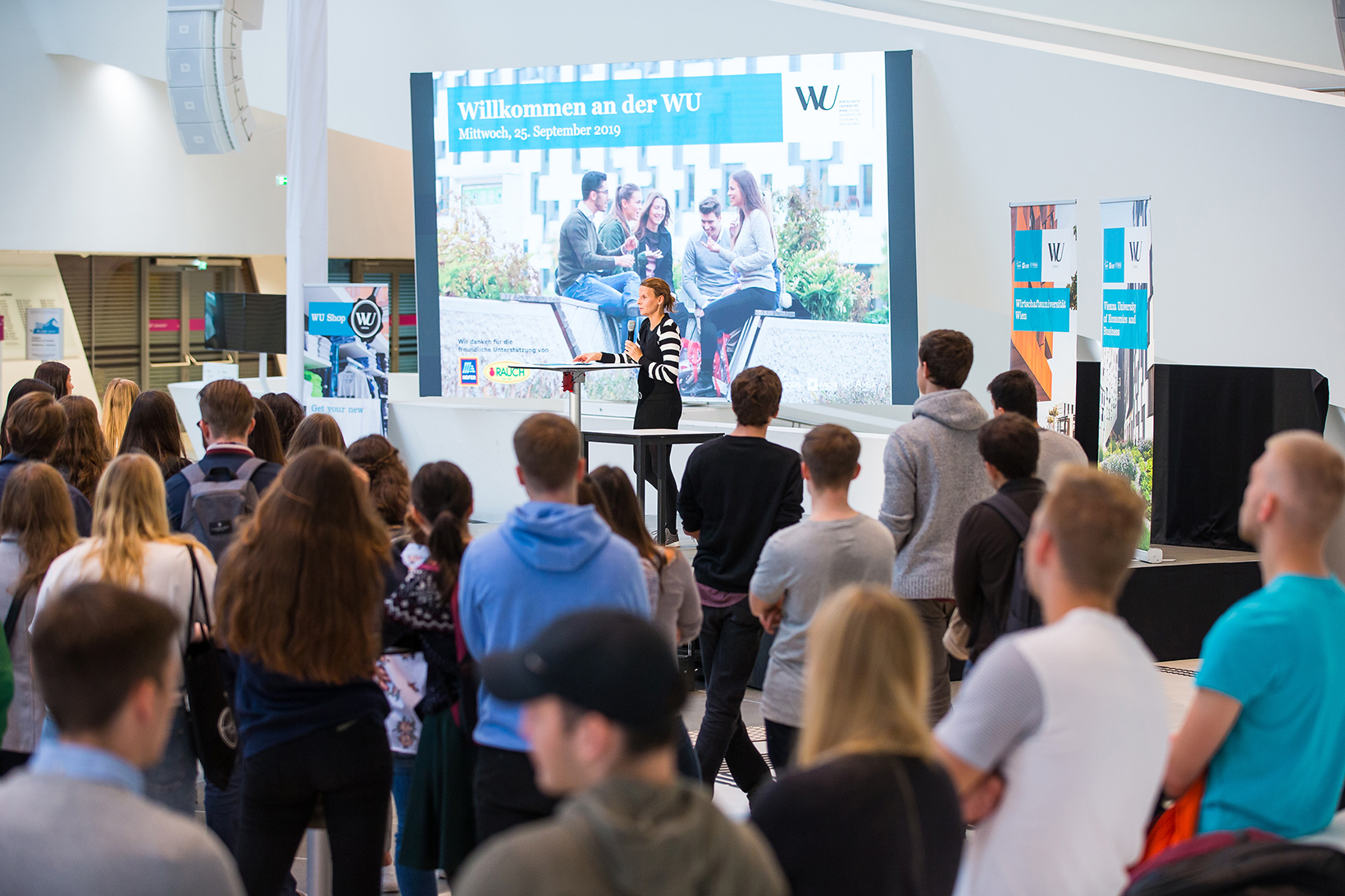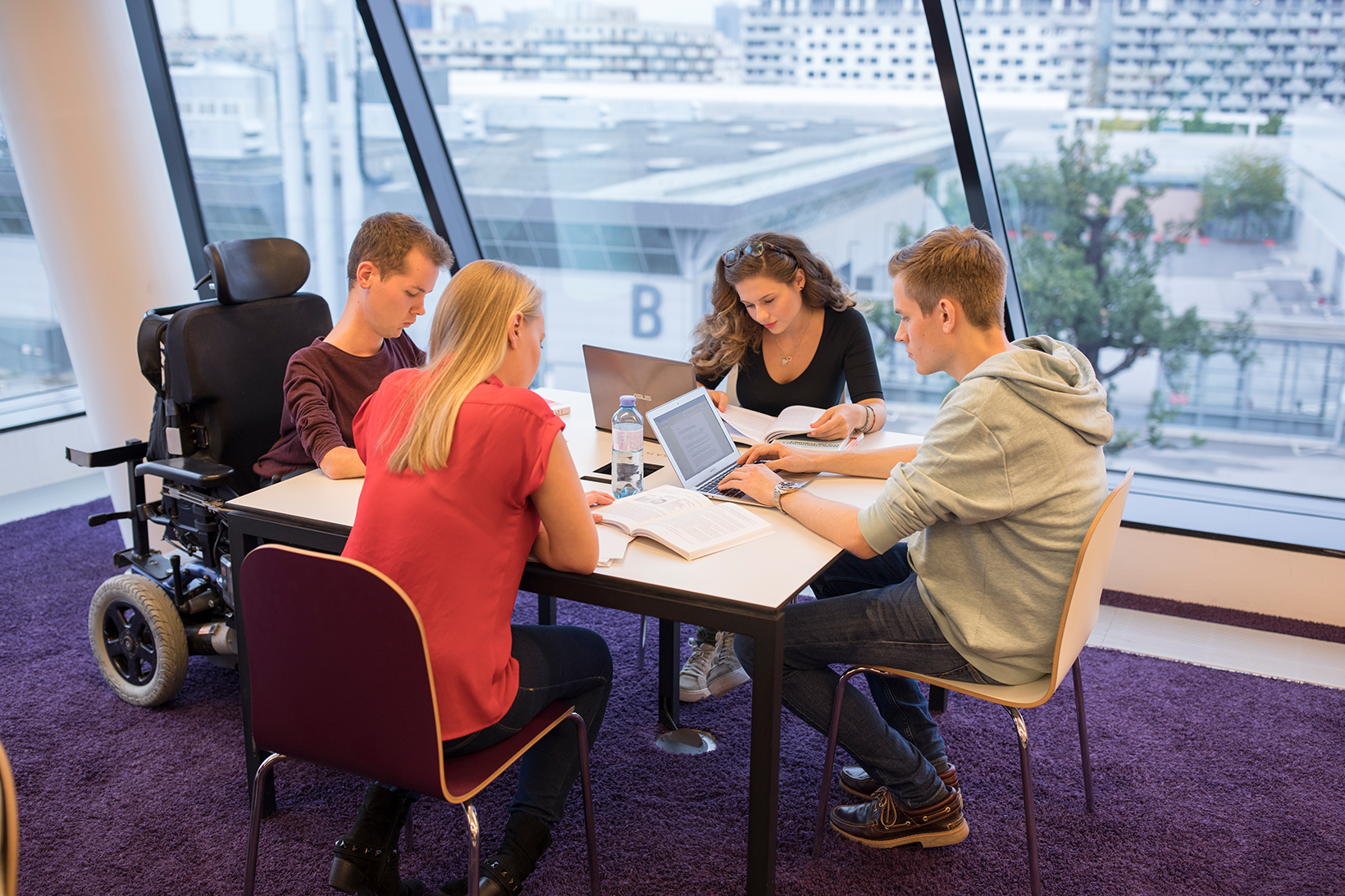Discovering Campus WU
We invited our future students to join us on campus even before they began their studies. The Campus Days event offered a diverse program including information booths staffed by members of the service centers, campus tours, lectures, and workshops. It offered next semester’s new students answers to all the questions that come with starting a new degree program. During lunch, they had the opportunity to get to know each other and network.
Welcome to WU
“Welcome to WU” was the motto in September. Rector Edeltraud Hanappi-Egger and Vice-Rector for Academic Programs and Student Affairs Margarethe Rammerstorfer personally welcomed the new students and provided them with valuable information and useful tips to help them all get off to a good start. There was also plenty of fun to go around: Students took a WU quiz and voted on the design of the class T-shirt, giving them an entertaining opportunity to make first contacts with fellow students and familiarize themselves with WU.

Students learning from students
Self-organization skills and a good social network are known factors for academic success. In the peer-mentoring program Mentoring@WU, higher-semester bachelor’s students mentor a group of new students for 1 or 2 semesters and help them get off to a good start. The mentors also benefit from the program, for example by working on important soft skills and gaining access to support options like workshops and individual coaching.
Individual support
Studying can be stressful. Our new Student Counselling Program helps students strengthen the skills they need to deal with the challenges all students face.
In addition to workshops and moderated peer groups on topics like motivation or dealing with pressure, stress, and exam nerves, we also offer individual consultations by telephone, email, or in person. We focus on each student’s individual questions and needs, providing orientation and supporting them in decision-making and conflict situations.
The Student Counselling team is there for WU students to help with:
- Planning their studies (strategically and individually)
- Study-related problems, conflicts, and crises (e.g. dealing with a lack of motivation, setbacks, writer’s block, distractions, returning to university after longer leaves of absence, fear of exams, procrastination)
- Psychosocial problems that negatively impact students’ academic performance and quality of life
- Difficult social situations, like balancing studies with a job or family life
- Doubts about the program/choice of degree program
- Uncertainty and anxiety, including fears about planning a future
Counselling services are available to all WU students. Initial experience has shown that especially first-generation students and students with an immigrant background are most likely to benefit from these services.

An accessible university
The aim of the BeAble program is to enable students with disabilities, chronic illnesses, mental illnesses, or learning disabilities to study without barriers. We help simplify and improve the everyday life of the program’s approximately 80 students by compensating for the disadvantages they experience. This can be, for example, by organizing writing assistance during exams, providing larger-type exam sheets, or supporting students in planning their studies in light of their individual impairment.
Student athletes
Students who are play sports at a competitive level and attend university at the same time are often faced with many administrative and structural challenges. The SLS (Studium Leistung Sport) program run by the KADA association provides support to student athletes and helps them reconcile the demands of competitive sports and successful academic studies. The SLS program helps student athletes custom-tailor their academic programs to balance out the additional time and effort required by competitive athletics. Participating students receive academic coaching and support in organizing their studies. The support services are tailored to each athlete’s individual needs, subject to the capacities available at the university. Currently, 17 successful competitive athletes are studying at WU.

